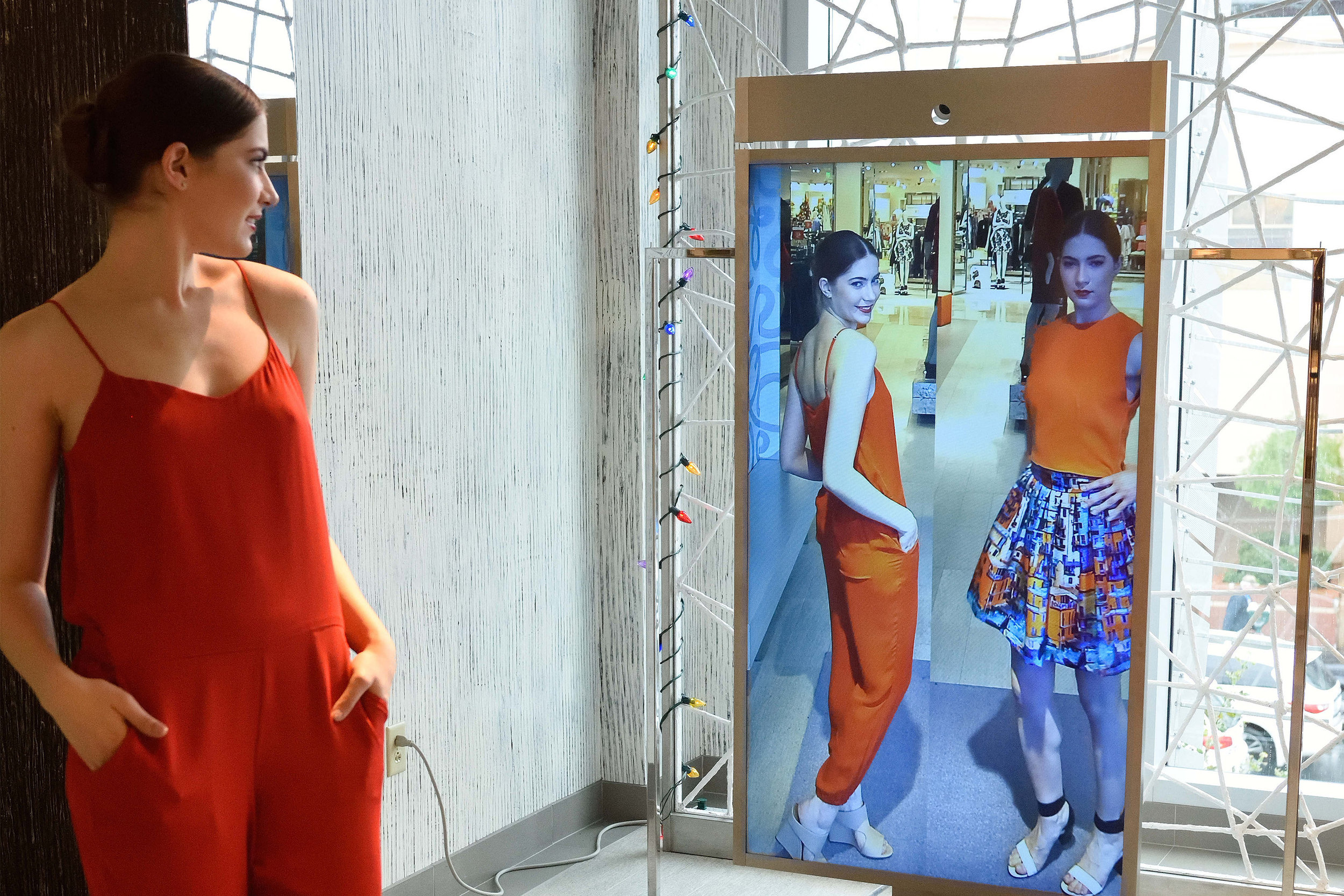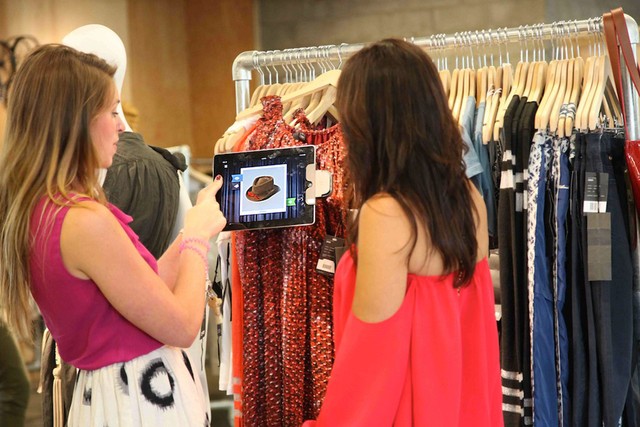How Technology and New Customer Experiences Influence the Role of Retail Employees
Zara integrated technological innovations in the Stratford flagship store
Phrases like "customer experience", "storytelling" and "retail technology" are thrown around a lot these days.
Wherever you go you hear about Artificial Intelligence, Augmented Reality and Virtual Reality being integrated into shopping processes. The hot topic is how to improve customer experiences and turn them from solely being useful to being enjoyable at the same time.
Zara for example has taken the merge of online and offline to the next level. The Stratford flagship store incorporates digital innovations on fleek: self-checkouts, connected mirrors and a robotic collection point.
We agree that establishing unforgettable customer experiences is of crucial importance in the retail business, especially when focusing on brick-and-mortar. Nevertheless, it should not be forgotten who actually contributes in huge parts to this experience.
Correct, it’s the in-store teams who represent the brands in physical stores to the outside world. The one thing that consumers cannot get online is a face-to-face customer experience.
Adaptation to technology
As the retail sector has endured drastic changes over the recent years, the job of sales assistants has changed alongside to that. Selling products to customers is no longer enough. Being part of their shopping experience requires way more skills than some years ago.
If stores implement technology like Magic Mirrors into their stores, staff has to know how to operate with them in case there are technical issues.
Skill set changes in retail
The IES (Institute for employment studies) states that the role of sales representatives at the POS is expanding and increasingly demanding. Developments in technology, a high level of competition and adoption of new working practices are just a few pressures coming along with the job these days.
It is important that shop assistants have interpersonal and communication skills and know how to use them when interacting with customers. This is highly contributing to building and maintaining customer relationships with a brand.
Other abilities required, mentioned by IES, are basic literacy and numeracy, computer literacy, product knowledge, taking responsibility and initiative, patience, housekeeping and merchandising, just to name a few.
A lot of times customers would compare offers online to prices in-store. As they bring all kinds of technology into the store, retail skills also include being familiar with these devices, like smartphones, iPads and tablets.
If stores implement technology like Magic Mirrors into their stores, staff has to know how to operate with them in case there are technical issues.
Digital skills are without any question on top of the list. Furthermore, four out of five e-commerce job postings in America request applicants to have at least a university degree.
Visual MerchandiserLisa van Zeist says "If you work in a fashion store in these days, you have to be more of an inspiration for the customer! You have to have a knowledge of the trends and need to know what the customer wants because fashion is always in motion".
Valentina Falzoi has worked as a sales associate for Rinascente and Primark, and was a Digital Sales mentor at Burberry. She couldn't agree more: "The job requires you to be proactive, confident and be enriched with a good dose of patience and enthusiasm."
Furthermore, she thinks that the job "has not changed but improved a lot through the years". Working with an iPad was a daily task for Falzoi and she states: "This new technology applied in store allows employees to update themselves to the latest trends and collections to be more efficient to respond to customer needs."
Pros and Cons
This evolution of reshaping the job as a retail assistant brings along assets as well as drawbacks. One could assume that whilst technology is being implemented more and more into the retail business, the job of a sales assistant will therefore become more interesting.
To the downside counts the fear of job losses. This might not be the case in brick-and-mortar as technology is by far not advanced enough to create emotional intelligence and the needed human touch.
Traditionally, the job of a sales assistants seemed to require little real ability or skills. Due to this reputation it might seem very difficult to managers nowadays, to find people who are actually perfectly qualified for what the jobs calls for.
A sales assistant is no longer “just” a person who sells products. Even job titles have been adjusted to what the position actually is nowadays. Having a look at advertised job openings for retail assistance, many companies use the phrase "brand ambassadors" which is more appropriate to what retail people are.
Training employees the right way is essential for retail success. Charlotte Tilbury Beauty for instance, has launched their own people management workshop with their retail management teams. The aim of it is to up-skill the in-store teams on how to deal with people.
Technology can be a great contributor in those training technologies. So instead of letting employees be threatened by technology in retail, managers should use the advantages of technology and implement them in training processes. Alberto - a concept store in Mönchengladbach in Germany-, for example, uses voice-controlled technology “Alexa” to train its 110 employees.
Embracing these new technologies should be of top priority. The important aspect is to conclude all components within it. Turning the customers' shopping experience to something special should goes hand in hand with keeping your employees at the POS in mind.
VR's software solution ShopShape can highly contribute to in-store technology advantages when it comes to retail processes. Learn more how it facilitates communication between head office and in-store as well as within retail teams.
About Zijada Mesic
Zijada was always involved in Fashion. As a Store Manager and Visual Merchandiser at the Diesel Stores in Amsterdam, creating guidelines for sales teams, conducting trainings and optimising store capacity were always part of her job. With her experience and know-how of how stores should look and feel, she consults and trains Visual Retailing’s customers since 2014 as a VM expert.

 Français
Français



